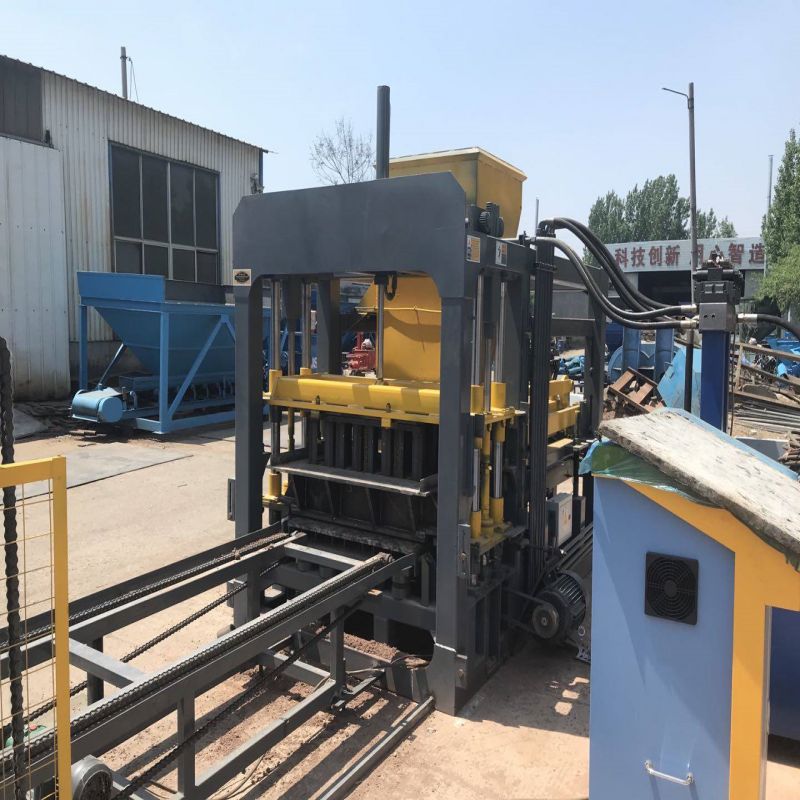
Introduction
Zimbabwe’s construction sector stands at the cusp of transformation, driven by urbanization, infrastructure development, and a growing demand for sustainable building practices. Central to this evolution is the block making machine industry, a cornerstone that supplies the essential machinery for constructing the nation’s buildings and infrastructure. In this article, we delve into the complex landscape of the block making machine industry in Zimbabwe, examining its present state, key players, technological trends, and its role in shaping the country’s construction landscape.
1. The Building Blocks of Progress: Understanding the Industry Landscape
The block making machine industry in Zimbabwe serves as a linchpin that connects raw materials with construction projects. This industry encompasses the manufacturing, distribution, and maintenance of various types of block making machines, each designed to cater to the diverse needs of the construction sector.
With a diverse range of construction projects, from residential to commercial to infrastructure, the demand for various types of concrete blocks is significant. As such, the block making machine industry plays a pivotal role in providing the machinery required to produce these essential building materials.
2. Market Trends and Demand Dynamics
Zimbabwe’s construction sector has witnessed significant growth, spurred by a surge in urbanization and infrastructure development. As cities expand, the demand for housing, commercial spaces, and public infrastructure continues to rise, propelling the need for concrete blocks.
The types of blocks in demand vary, including solid blocks, hollow blocks, interlocking blocks, and specialized blocks for specific construction purposes. This diversity drives innovation in block making machine technology, as manufacturers strive to meet the evolving demands of the construction industry.
3. Key Players and Competitors
The block making machine industry in Zimbabwe comprises a mix of local manufacturers and international players. Local manufacturers often possess a deep understanding of the local construction landscape and tailor their products to meet specific needs.
Global manufacturers, on the other hand, bring advanced technology, expertise, and the ability to tap into international markets. The presence of both local and global players fosters healthy competition, encourages innovation, and ensures that the industry stays dynamic.
4. Technological Advancements: Paving the Way for Efficiency and Quality
The block making machine industry in Zimbabwe has not remained static; it has embraced technological advancements that have transformed the way blocks are produced. These technological trends aim to enhance efficiency, improve product quality, and align with sustainable construction practices.
Automation: Automation has become a hallmark of the industry, optimizing the production process from raw material mixing to block stacking. Automated machines offer higher production capacities, reduced labor costs, and enhanced quality control.
Interlocking Block Technology: Interlocking block technology has gained traction for its sustainability and cost-efficiency. This technology creates blocks that fit together without the need for mortar, accelerating construction timelines and reducing material consumption.
Energy Efficiency: Manufacturers are incorporating energy-efficient features into block making machines. This includes using renewable energy sources for machine operation and optimizing processes to minimize energy consumption.
5. Sustainable Practices: A Shift towards Green Construction
Sustainability is a growing concern in Zimbabwe’s construction industry, and the block making machine sector is responding by adopting more environmentally friendly practices.
Recycled Materials: Some block making machines are designed to use recycled materials, such as crushed concrete and waste aggregates, to create blocks. This reduces the demand for virgin materials and minimizes waste.
Interlocking Blocks: Interlocking block technology, mentioned earlier, contributes to sustainable construction by reducing the need for mortar, cement, and water during construction. This results in significant energy and resource savings.
6. Challenges and Opportunities
While the block making machine industry in Zimbabwe is primed for growth, it also faces challenges that warrant attention.
Access to Technology: Smaller manufacturers may struggle to invest in advanced technology due to financial constraints. Bridging this technology gap can be a challenge.
Skills Gap: Operating and maintaining advanced block making machines requires skilled technicians and operators. Training programs and education initiatives are needed to address this skills gap.
Market Fluctuations: The construction industry’s cyclical nature can lead to demand fluctuations for block making machines. Manufacturers must anticipate market trends and diversify their product offerings.
Conclusion
The block making machine industry in Zimbabwe stands as a testament to the nation’s commitment to construction excellence and sustainable development. Its role in providing essential machinery, aligning with technological advancements, and embracing sustainable practices highlights the industry’s adaptability and resilience. As Zimbabwe’s construction landscape continues to evolve, the block making machine industry will play an ever-increasing role in shaping the skylines of cities, the foundations of infrastructure, and the future of the country’s built environment. By embracing innovation, sustainability, and a dedication to quality, manufacturers in this industry are instrumental in ensuring a robust, resilient, and sustainable construction ecosystem for Zimbabwe’s future.
